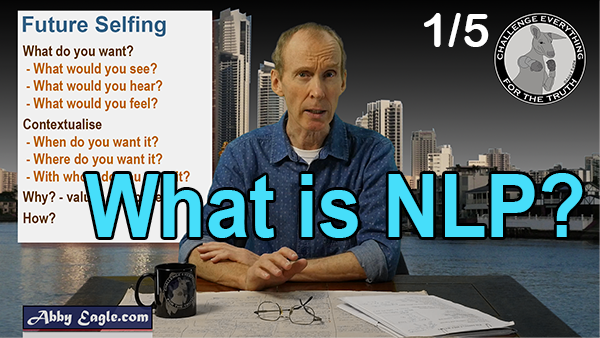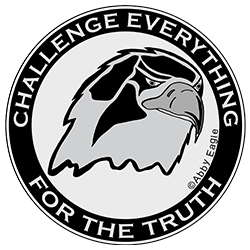
What is NLP? How is NLP different to Psychology and Psychiatry? What makes NLP so effective? Why does NLP get rapid long lasting change? Phone 07 5562 5718 or send Abby an email to book a free 20 minute telephone or Skype session. NLP and Hypnotherapy Gold Coast, Robina. Neuro Linguistic Programming NLP coaching, Hypnotherapy and Meditation. Skype sessions online - or face-to-face on the Gold Coast, Robina.
What You Need to Know About NLP before booking a session or enrolling in a training program
By Abby Eagle (2019)
Click the Image to Watch on YouTube
In this article I want to give you an introduction to Neuro-Linguistic Programming otherwise known as NLP.
So let me start with a summary. NLP is a model of applied psychology. Whereas psychologists tend to look at your personal history and ask ‘why’ questions about your problems – which only tends to reinforce the problem – with NLP we gather a bit of information about your present state and your past but then quickly move onto building what we call a well-formed outcome. That is helping you to set goals – and to discover the best version of your self. This process I call future selfing.
So we start by getting an idea of what your future could look like by asking questions like:
- what do you want?
- what would you see?
- what would you hear?
- what would you feel?
And then we contextualise your desired outcome by asking:
- when do you want it?
- where do you want it?
- with whom do you want it?
Once you have an idea of what you want then we ask - why do you want the desired outcome? Why else do you want the outcome? And so on. This gives us a hierarchy of values – which are your motivators – the reason why you take action.
The next step is to get into the ‘how’ – which is quite involved – but I am getting ahead of myself – so let’s take a look at what NLP is because if you want to discover the best version of yourself and create the future of your dreams – which you can do – then you need to understand what NLP is? You have to get an understanding of the higher frames of mind which oversee your thoughts and behaviours.
Who founded NLP?
Richard Bandler is credited with 'discovering' the NLP modelling process in the early 1970s when he inadvertently modelled Fritz Perls. According to John Grinder - Bandler and Frank Pucelik were highly skilled in both modelling and Gestalt Therapy by the time he started working with them in 1974. John was originally co-opted to turn what Bandler and Pucelik could already do into a coherent model they could teach to others. Credit also needs to be given to a host of other codevelopers who played a part in its development as a field.
Bandler went on to develop Design Human Engineering, Grinder developed the New Code NLP, Anthony Robbins developed Neuro Associative Conditioning, Michael L. Hall developed Neuro Semantics, and many others have developed their own change models based upon the original NLP model.
If you have an interest in studying NLP it is recommended that you study some of the early books and training materials in order to gain an understanding of the spirit in which NLP was created. I would suggest that you watch all of Bandler’s videos from the 1980’s.
And I should mention here that NLP has got a bad reputation in some circles because some of the trainers and practitioners have used the NLP models, language patterns and techniques to manipulate people – especially in the field of sales. So like any tool it can be used for good or bad – and the best defence is to train yourself up to a high standard of excellence.
What is NLP?
NLP is a behavioural and cognitive psychology that grew out of the Human Potential Movement of the 1960's. Some of the key players were William James, Aldous Huxley, Carl Rogers, Viktor Frankl, Fritz Perls, Virginia Satir, Gregory Bateson and Moshe Feldenkrais.
NLP was also developed at a time when hypnosis was not looked upon favourably by the mainstream psychology and medical professions. NLP then became a way to covertly employ hypnosis. In Western Australia in the eighties only registered Psychologists could practice hypnosis – and since I had to drop out of my psych degree due to health issues I moved to the Gold Coast where it was legal to practice hypnosis.
So where do we get the words Neuro Linguistic Programming?
Neuro from neurology. Our senses (abstracters), - visual, auditory, kinaesthetic, olfactory, gustatory (VAKOG), are the closest contact we have with the territory and abstract the information.
Linguistics refers to the way that language affects our perception of the world and creates behaviours.
Programming refers to the notion that the neural network pathways are programmed to work in predictable ways.
NLP is a methodology of modelling.
It is the process of recognising patterns of excellence and defining them in such a way that others can use them. Do you get that? So what we do is find someone at the top of their profession. We model out the thought processes that they use and then we get a method, a procedure, a technique for success that we can teach to others.
NLP requires both an attitude of curiosity and a scientific but playful approach to experiment beyond the traditional paradigms. So NLP is not so much interested in the 'why' but in the 'how' to get results. Whereas traditional psychologists might ask a lot of ‘why’ questions which tend to reinforce the problem – with NLP we get a bit of information about the present situation but then quickly move on to mapping out your future self – the best version of yourself – what we call a well-formed outcome.
Now NLP is a process of discovery that leaves behind it a trail of techniques. The techniques that are written up in the books and taught at workshops are not NLP. They are the results of applying the NLP methodology of modelling. If you want to create the future of your dreams and manifest massive success then you need to be able to make that distinction. NLP is the process and the techniques are the content.
So how does NLP differ from Psychology and Psychiatry?
Both psychiatry and psychology tend to focus on the content, hence psychiatrists and psychologist may spend considerable time having you talk about your past problems. Both psychiatry and psychology ask "why" the client has a problem. They analyse the client until they decide upon a diagnosis which invariably means the client ends up wearing a label. Psychiatry and psychology are related to the medical model.
Rather than focus on content NLP works with the structure of the mind. NLP is solution oriented. NLP is process oriented. NLP is not interested in why you have a problem. NLP is interested in how to get a result as quickly as possible. NLP is probably not considered to be scientific by the psychological profession but NLP is practical and methodical and most importantly NLP consistently gets rapid results – if you know how to use it.
So what do you want? Do you want to know why you have a problem or do you want to make positive changes and build a fantastic future for yourself?
So let’s look at some of the applications of NLP?
NLP can be used as a therapy to heal the past and to help people change bad habits. Most importantly NLP can be used to create peak performance in the areas of business, sales, health, sport, education, learning and spirituality. NLP can be used to influence most things in a person's life. The NLP models can be applied to an organisation as well as an individual, and can be applied to the study of any discipline such as science and religion.
Now there are a few principles you need to keep in mind. These higher frames of mind determine how the lower frames are applied – and whether they will work or not.
Principles of NLP
- NLP is the study of subjective experience.
- The mind has a structure that can be mapped.
- Mind and body are not separate. The mind-body is one system.
- The meaning of your communication is the response that you get.
- There is no such thing as failure, only feedback.
- People are not broken - they work perfectly. We just need to find a solution.
- If your beliefs limit you then rather than changing the world change your beliefs.
- All behaviour has a positive intention. The intention needs to be acknowledged. Behaviour is the output of thoughts in the mind.
- We need to add choices, not take them away. People will always choose the best option.
- If someone else can do it, then there is a possibility that others can to.
- There needs to be sufficient degree of rapport (trust and respect) between the NLP Coach and the client for transformational change to occur.
- The NLP Coach acts as a facilitator to help the client access and mobilise their inner resources in order to achieve a well-formed outcome.
- The client is responsible for the changes they make.
So that is my introduction to NLP. If you want to learn more about NLP then I encourage you to methodically browse my website and check out my youtube channel for the videos.
I suggest you start by learning how to map out your values such that you come to understand what motivates you to action. Let me know what you think in the comments section below. And if you are looking for some personal tuition or need help to make some changes then feel free to contact myself – Abby Eagle using the contact form - right of this page.
Ackowledgements: see the bibliography.
Share With Friends
| DISCUSSION GROUPS | |
|---|---|
 |
|
| NLP Future Selfing | |
| NLP, Hypnotherapy & Meditation | |
| NLP Peace Mapping | |
| Facebook Discussion Group | |
| The secret of high achievers |
|---|
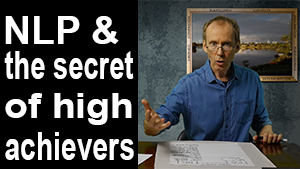 |
| How to build a powerful team |
 |
| Learn the NLP Meta Model |
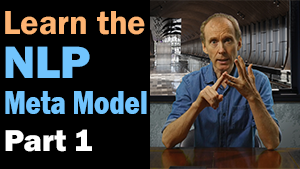 |
| How I stopped drinking alcohol. |
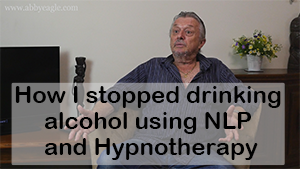 |
| How to coach yourself using NLP. |
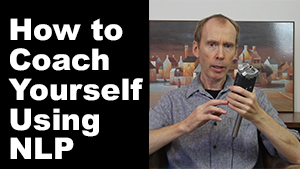 |


